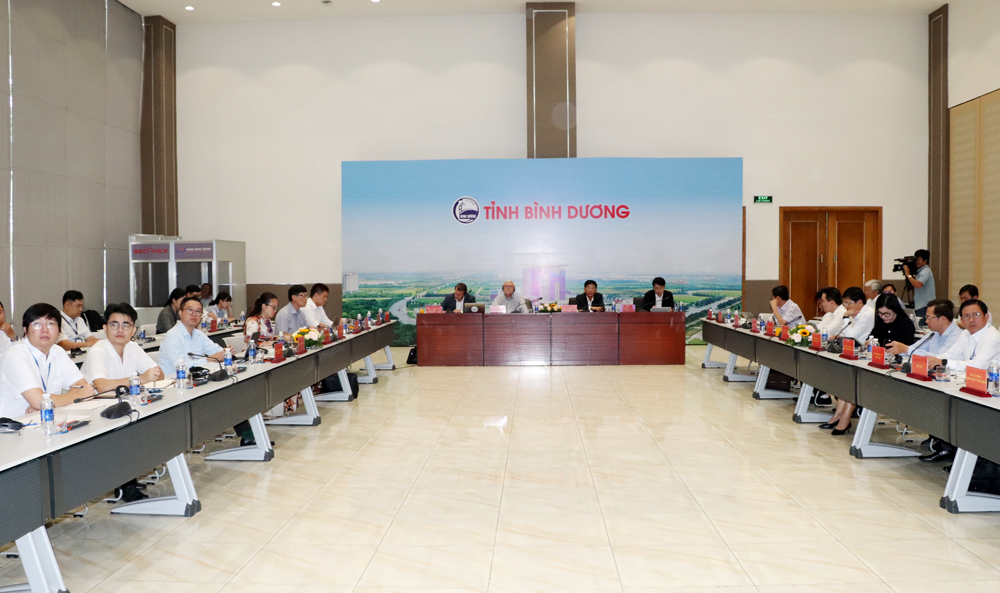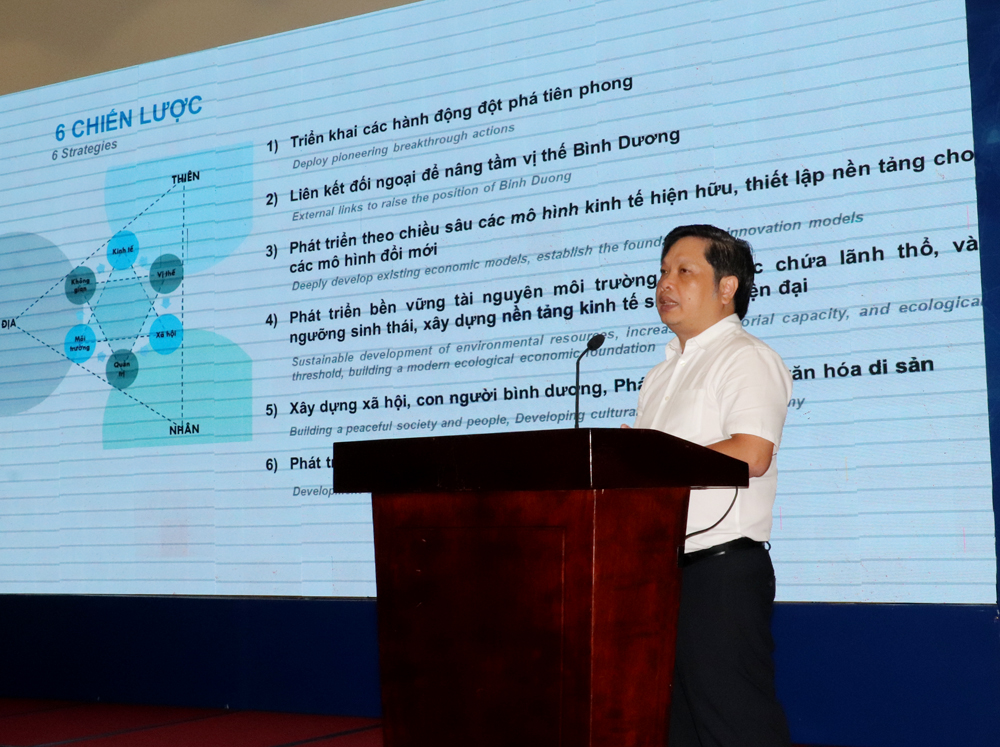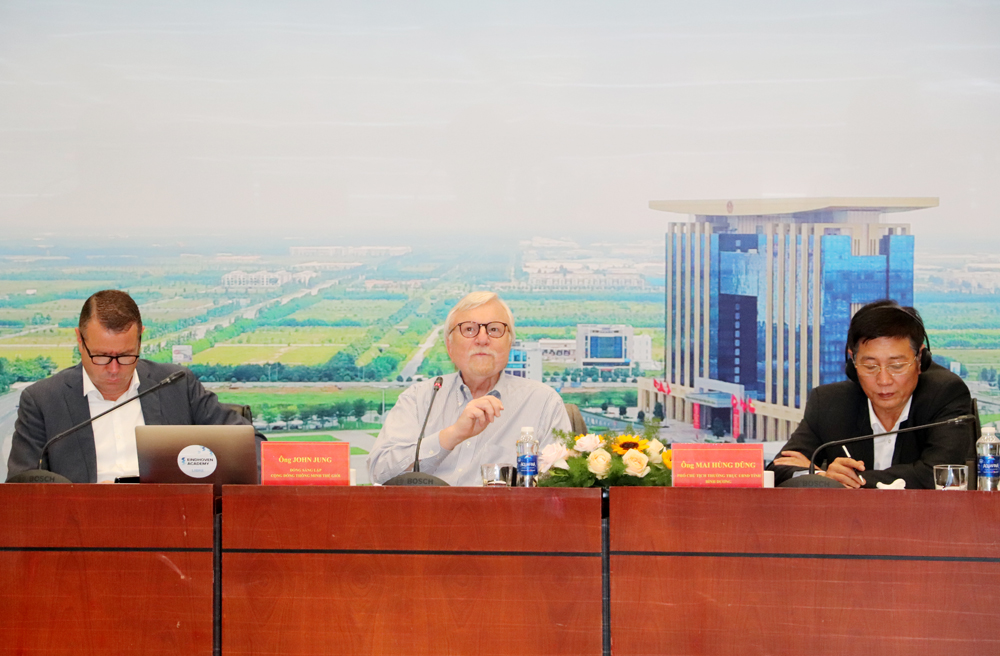Attending were leaders of provincial departments, committees and branches.

Overview of the meeting
At the meeting, representatives of the Department of Planning and Investment and the consulting unit presented the purpose, meaning and some basic contents of Binh Duong province's planning for the 2021-2030 period, with a vision to 2050. In particular, the approach, bottlenecks and challenges in terms of growth model, transport infrastructure, environment, etc. are outlined. However, Binh Duong has advantages such as being located in the central area of Ho Chi Minh City, having industrial and urban infrastructure, and good land fund; the government accompanying enterprises with dynamism and innovation. Therefore, the province aims for green and sustainable growth, striving to become a modern urban, industrial and service area of regional and international stature by 2050.
To achieve that goal, the province proposed 6 strategies for development including: Deploying pioneering breakthrough actions; foreign relations to enhance Binh Duong's position; developing urban space and infrastructure; developing in depth and new models of economic, cultural and social development; space and infrastructure; protecting the ecological environment, etc. The province applies the TOD model to create a foundation for developing public transport infrastructure, associated with urban development; Southern urban redevelopment, development of the North - South economic corridor and ecological corridor along the Saigon and Dong Nai rivers.

Representative of the consulting unit presents the draft Master planning of Binh Duong province for the 2021-2030 period, vision to 2050
Mr. John Jung - ICF Co-founder highly appreciated Binh Duong province's planning for the 2021-2030 period, with a vision to 2050. The planning has taken further steps, exploiting the potential and strengths of the locality, associated with the orientation of building a smart city. Besides, the planning has also contributed to clearly shaping the new development step of Binh Duong, along with the 6 criteria given by ICF. The ICF representative also commented on some contents of the planning such as: Necessary to assess the social impact of relocating manufacturing plants to industrial parks and clusters, resettlement, ensuring support services in new areas; having plans to flexibly respond to challenges such as pandemic, environmental changes, and climate change. Mr. John Jung also mentioned the planning orientation for the waterway transportation system and river tourism development; building social housing for workers; developing high-tech forms of transportation (such as self-driving cars, etc.).

Mr. John Jung – ICF Co-founder speaks at the meeting
Speaking at the meeting, Permanent Vice Chairman of the PPC Mai Hung Dung said that provincial planning is the overall content that guides the province's development in the coming period associated with smart community development, but must ensure feasibility. The delegates' comments will be recorded and adjusted by the province and the consulting unit to soon have the best quality planning as a basis for implementing State management, suitable for the new development stage.